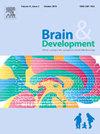Gene therapy for Duchenne muscular dystrophy
IF 1.3
4区 医学
Q4 CLINICAL NEUROLOGY
引用次数: 0
Abstract
Duchenne muscular dystrophy (DMD) is an X-linked neuromuscular disorder caused by variants of the DMD that leads to progressive muscle degeneration. Recent advances in gene therapy have opened new therapeutic avenues, particularly through the use of adeno-associated virus (AAV)-mediated micro-dystrophin delivery. Delandistrogene moxeparvovec, the first FDA-approved gene therapy for DMD, has demonstrated transgene expression and potential functional improvement in early phase trials, although its long-term efficacy, durability, and safety remain unconfirmed. Immune-mediated toxicities including myositis, myocarditis, and liver injury present significant clinical challenges, prompting the need for careful patient selection, immunoprophylaxis, and post-treatment monitoring. In addition to micro-dystrophin replacement, novel gene therapy approaches such as endogenous dystrophin upregulation, exon skipping, and adjunctive muscle-enhancement strategies are being explored. Future studies focus on overcoming vector size limitations by using dual/triple AAV systems or non-viral platforms, improving muscle tropism through capsid and promoter engineering, and expanding eligibility through desensitization protocols. This review provides an integrated overview of the current progress, challenges, and future perspectives in gene therapy for DMD, with the aim of supporting its safe and effective clinical implementation.
杜氏肌营养不良症的基因治疗
杜氏肌营养不良症(DMD)是一种由DMD变异引起的x连锁神经肌肉疾病,可导致进行性肌肉变性。基因治疗的最新进展开辟了新的治疗途径,特别是通过使用腺相关病毒(AAV)介导的微肌营养不良蛋白递送。Delandistrogene moxeparvovec是fda批准的首个DMD基因疗法,在早期试验中已经证明了转基因表达和潜在的功能改善,尽管其长期疗效、持久性和安全性仍未得到证实。包括肌炎、心肌炎和肝损伤在内的免疫介导的毒性在临床中提出了重大挑战,促使需要仔细选择患者、免疫预防和治疗后监测。除了微肌营养不良蛋白替代,新的基因治疗方法,如内源性肌营养不良蛋白上调、外显子跳跃和辅助肌肉增强策略正在探索中。未来的研究重点是通过使用双/三重AAV系统或非病毒平台来克服载体大小的限制,通过衣壳和启动子工程改善肌肉趋向性,以及通过脱敏方案扩大适性。本文综述了目前DMD基因治疗的进展、挑战和未来展望,旨在支持其安全有效的临床实施。
本文章由计算机程序翻译,如有差异,请以英文原文为准。
求助全文
约1分钟内获得全文
求助全文
来源期刊

Brain & Development
医学-临床神经学
CiteScore
3.60
自引率
0.00%
发文量
153
审稿时长
50 days
期刊介绍:
Brain and Development (ISSN 0387-7604) is the Official Journal of the Japanese Society of Child Neurology, and is aimed to promote clinical child neurology and developmental neuroscience.
The journal is devoted to publishing Review Articles, Full Length Original Papers, Case Reports and Letters to the Editor in the field of Child Neurology and related sciences. Proceedings of meetings, and professional announcements will be published at the Editor''s discretion. Letters concerning articles published in Brain and Development and other relevant issues are also welcome.
 求助内容:
求助内容: 应助结果提醒方式:
应助结果提醒方式:


